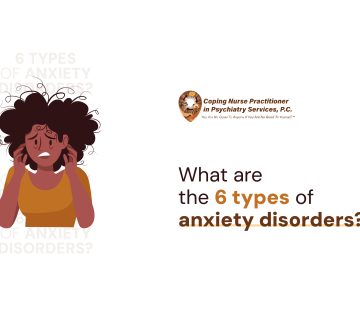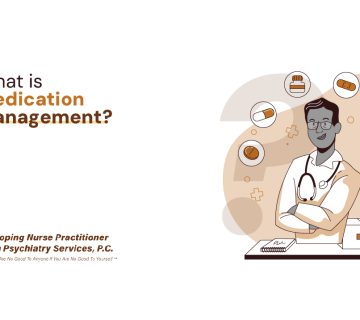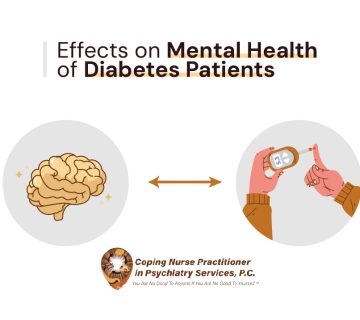It’s never easy to write about challenging topics, such as suicide and depression. We live our lives every day with multiple life challenges, such as relationships, financial, emotional, physical, spiritual, social and mental health to name a few. How do you keep hope alive in the middle of the storms of life when your mind feels so sad, lost, overwhelmed, down, and hopeless with loss of desire to continue living? This brings me to the topics of suicide and depression. This narrative is based on personal and professional experiences and knowledge.
How can we not actively have realistic dialogues about this topic when it hits close to some of our homes frequently whether being in our families, churches, workplaces, schools and communities? Let’s be honest, how many times have we been so shocked to hear of one of our friends, family members or favorite celebrities losing their lives to suicide, such as Robin Williams and Anthony Bourdain? Unfortunately, society places a lot of labeling and stigma on this topic that prevents the active conversation, discussion and treatment in seeking out help when experiencing depression, suicidal thoughts or suicide. These are especially “hush hush” conversations in the black and African American communities as an African American/Americo-Liberian Nurse Practitioner in Psychiatry. I for one grew up in a community of faith as a Christian and Liberian, West African community that shy away from the conversation of talking about mental illness and addiction. I lived my entire young life not quite understanding nor knowing that my father had a mental illness and addiction until in my late teenage years to adulthood. I unfortunately didn’t get to know or remember meeting my father until seeing him in a casket at 12 years old.
I felt a deep sense of not belonging and lack of connection as a result of not knowing the other parent who I shared 23 chromosomes with and a genetic make-up of. Next, I became ashamed as well when I learned more about him at late adolescent to young adulthood years that he had a mental illness and addiction. Lack of knowledge, insight, awareness, compassion, love, empathy and education are contributing factors to stigma, shame, and taboos that society places on people struggling to deal with mental illness. I didn’t know any better. My family didn’t keep these conversations in my early years about mental illness nor my father’s per say. In all honesty, I didn’t quite gain wisdom, knowledge and understanding about mental illness and addiction in relation to my father and his journey until my 30s and when I became a professional in the mental health field. In addition, I had more understanding when I became grounded in my faith and spiritual walk with God. I truly see now why the Bible states in Proverbs 4:7 that “therefore get wisdom. And in all you’re getting, get understanding.”
Second point of focus, what is depression? Depression is when one feels constantly sad and down with some symptoms such as feelings of hopelessness over a period that is worsening and not getting better. Other symptoms of depression are difficulty sleeping, increased or decreased appetite, irritability, decreased energy, and thoughts of suicide. Depression affects your thoughts, feelings and behavior. In addition, if left untreated, it can lead to suicidal thoughts and successful intentional loss of life by suicide which I have dialogued about earlier. What can we do differently? The key is paying attention to the early warning signs of depression and suicide. For example, if you are reading this blog and someone you know or yourself is having thoughts, have a plan and means to harm themselves please call 911; seek help with a professional or call the National Suicide Prevention Lifeline at 800-273-TALK (800-273-8255).
According to the National Institute of Mental Health (NIMH), “suicide is a major public health concern. Suicide is among the leading causes of death in the United States.” Let me share some statistics with you all according to the Centers for Disease Control and Prevention (CDC) WISQARS Leading Causes of Death Reports in 2017. It stated, “suicide was the tenth leading cause of death overall in the United States, claiming the lives of over 47,000 people.” The CDC statistics also showed that “suicide was the second leading cause of death among individuals between the ages of 10 and 34, and the fourth leading cause of death among individuals between the ages of 35 and 54.” As someone who is a veteran and former active duty soldier, there are statistics I find even more alarming. According to the Department of Veteran Affairs’ suicide report from data covering 2005-2015, high suicide rates were reported. The report states that “20.6 suicides every day” with a breakdown being “16.8 were veterans and 3.8 were active-duty service members, guardsmen and reservists.”
Please allow me now to share my own testimony. I was medically discharged from the military over 16 years ago while experiencing a complicated pregnancy. In addition to that, I was dealing with medical issues that were complicated even further with financial and mental health issues of Major Depression. The combination and stress of being pregnant and jobless carrying a child with no income, therefore attributed to my mental health challenges with Depression and then suicidal thoughts. Years ago, I was in a very dark place where my life didn’t seem very meaningful with all the stressors. To climax all of this, I was dealing with the rising hormones of carrying my first child. In addition, my husband at that time had no job and was a full-time student in a Doctorate Degree program.
I felt then hopeless, loss, depressed, and not very fulfilled being a professional Registered Nurse that was medically discharged and pregnant at that time with no means of income. I experienced depression, and I had suicidal thoughts that I was better off being out of this world then being in it. I was also ashamed to tell anyone close to me that I was experiencing depression while pregnant. At some point of my journey, my faith was questioned, and I didn’t feel that God treated me fairly. I did manage in my lowest moments to seek out professional mental health services, such as psychotherapy/counseling and medication management over the years that made a difference in my thoughts, feelings and actions. Over the years, my faith and walk with God has become stronger to allow me to pursue my current professional venture that I am deeply passionately and compassionately dedicated to. I am currently a Nurse Practitioner in Psychiatry. Living with physical and mental health challenges has allowed me to remain humble and empathetic more than ever in this professional journey that God has placed me in. I now know how it personally feels to be the nurse, patient and provider.
I want this blog to be an open forum to dialogue about everyday realistic nonfictional hands-off topics that are affecting our lives and communities. The goals and objectives that I hope to promote from my readers are to gain knowledge, insight, understanding, awareness, and the wisdom to seek out help when experiencing these challenges. I was blessed along my life journey to have great psychiatrists, counselors, and therapists that introduced healthy options to relieve my mental health challenges through “talk therapy” also known as counseling and psychotherapy and/or in conjunction with medication management. In addition, I kept myself and children involved in a community of faith life, improved my diet, improved my prayer life, exercised, meditated and began listening to more gospel music to uplift my spirit. Everyone’s situation is not the same and there is no one size fits all for mental health treatment and recovery. The key is finding a practitioner or seeking out help from someone that you can develop a safe and trusting therapeutic alliance with to gain help in order to ease your pain. That is the number one goal and objective for your healing journey to begin. This is not a forum to cast judgment on anyone but to be open minded and supportive to the needs of others.
Depression and suicide are real, and they go hand in hand. We need to be our brothers’ and sisters’ keeper and pay more attention to signs of fluctuating mood, excessive sadness, hopelessness, lack of desire to live, conversation about death, giving away belongings, homicidal and suicidal plans and taking excessive risk. I can’t stress more than ever the importance of surrounding oneselves with supportive environments, whether communities of faith, family, friends or/and seeking out professional help. It is imperative that early intervention for both depression and suicide be sought out early to have a better prognosis and life sustainability. In closing, I would like to share one of my favorite Bible verses, Jeremiah 29:11, which states “For I know the plans I have for you, declares the Lord, plans to prosper you and not to harm you, plans to give you hope and a future.” So basically, God wants us to have a fruitful, rewarding, and progressive life by seeking out help when we need it in order to develop better coping mechanisms to deal with life’s trials and tribulations. Lastly, I wish you all well, much love, blessings and peace of mind. Please listen to this song by Darlene McCoy which states “I shall live and not die”





No comment